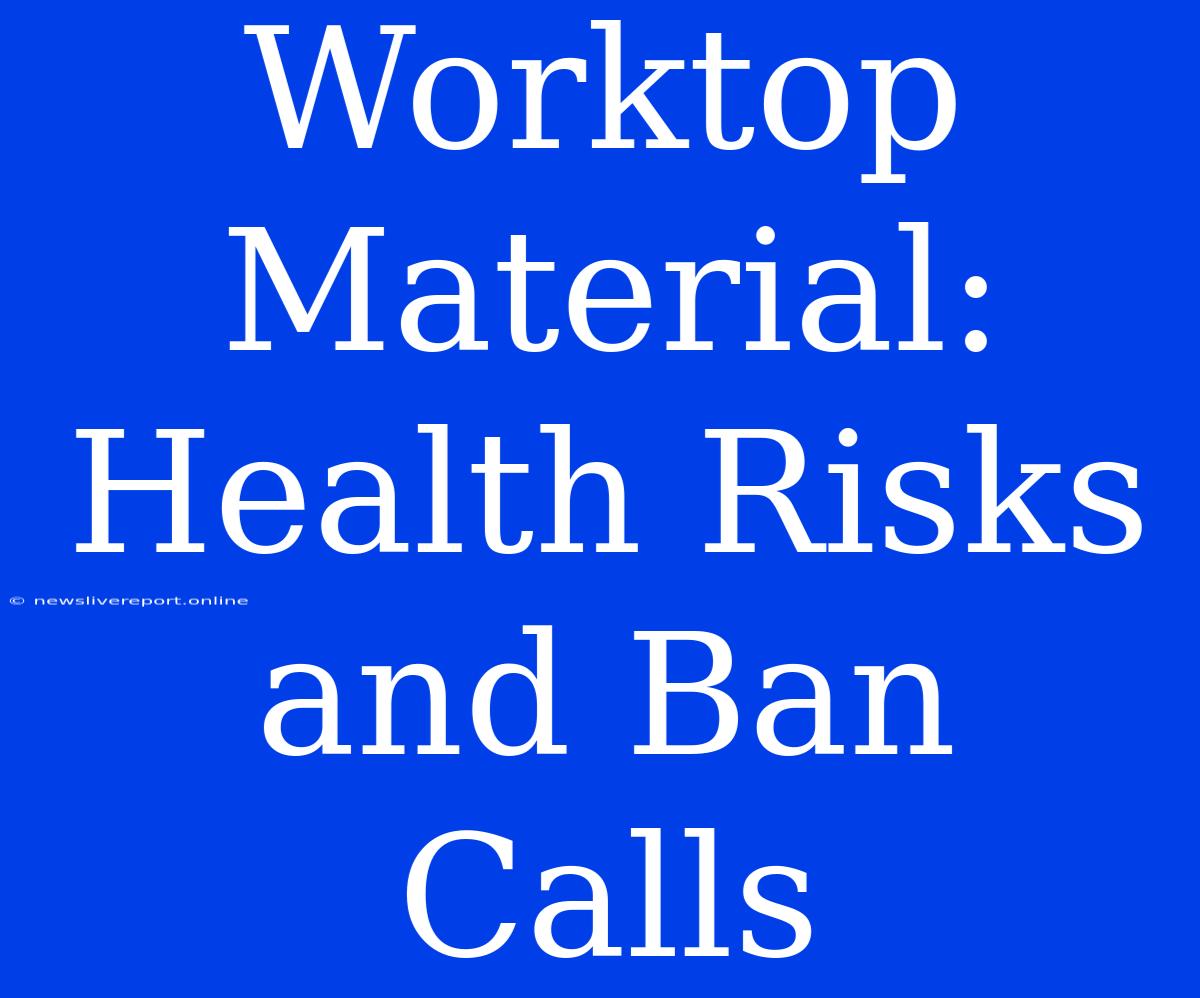Worktop Material: Health Risks and Ban Calls – Are Your Countertops Safe?
The heart of any kitchen is undoubtedly the worktop. It's where meals are prepared, where families gather, and where memories are made. But what if the very material that makes up your countertop is posing a health risk? Recent calls to ban certain worktop materials due to potential health concerns have sparked a debate about the safety of our kitchens.
The Health Risks
While most worktop materials are generally safe, some have been linked to potential health issues. Here are some of the most concerning:
1. Granite and Marble: These natural stone materials can contain high levels of radioactive radon gas. While the levels are usually not considered dangerous, prolonged exposure can increase the risk of lung cancer.
2. Laminate: Some laminate countertops contain formaldehyde, a volatile organic compound (VOC) that can cause respiratory problems, eye irritation, and even cancer.
3. Engineered Stone (Quartz): This popular material is often touted as durable and easy to maintain. However, it contains resin binders, some of which may release VOCs that can be harmful to human health.
4. Solid Surface: These composite materials can contain acrylics, which can release VOCs and have been linked to allergies and respiratory issues.
5. Recycled Plastic: While touted for its sustainability, some recycled plastic countertops have been found to contain phthalates, which can disrupt hormones and have been linked to developmental problems in children.
Ban Calls and The Debate
Calls to ban certain worktop materials, specifically those containing high levels of harmful chemicals, are gaining traction. Environmental groups and health advocates argue that these materials pose a significant risk to public health, especially for vulnerable populations like children and pregnant women.
However, the debate is not without its detractors. Manufacturers and industry groups claim that the levels of harmful chemicals in these materials are well below safety limits and that the risks are minimal. They also argue that banning these materials would significantly impact the industry and consumer choice.
Making Informed Choices
While the debate continues, consumers can take steps to minimize their exposure to potential health risks:
- Choose worktop materials with low VOC emissions. Look for certifications like GREENGUARD or UL Environment Gold.
- Opt for natural materials like wood or slate, which are generally considered safer.
- Ensure proper ventilation in your kitchen. This helps to remove VOCs and other pollutants from the air.
- Read labels carefully and inquire about the specific materials and manufacturing processes used.
The Bottom Line
It's essential to be informed about the potential health risks associated with different worktop materials. While some materials may be perfectly safe, others can pose a risk. By making informed choices and taking steps to minimize exposure, you can ensure your kitchen is a safe and healthy space for your family.

